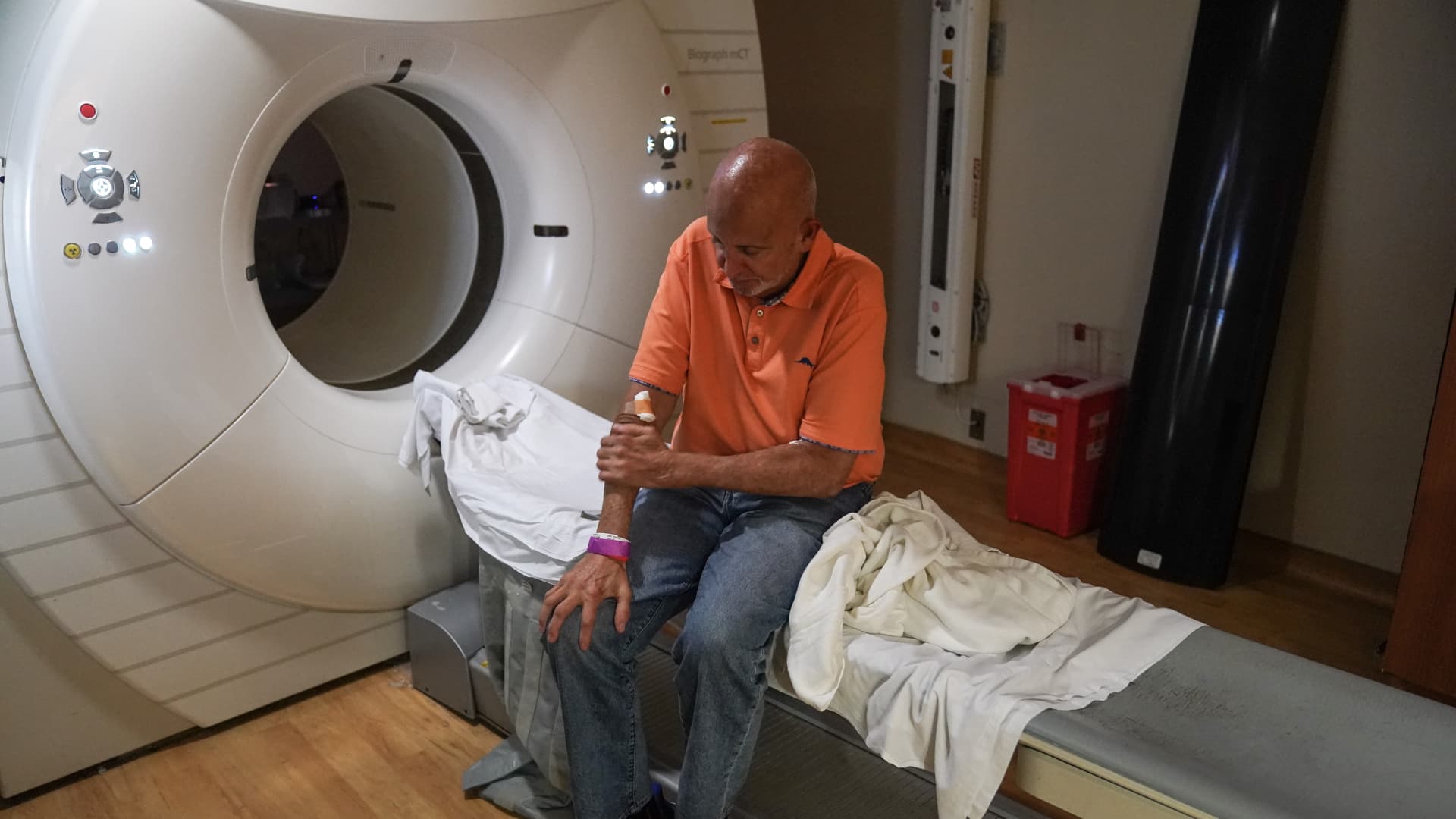
Jay Reinstein, who suffers from Alzheimer’s, sits on a bed after receiving a PET scan at MedStar Georgetown University Hospital in Washington, DC on June 20, 2023.
Michael Robinson Chávez | The Washington Post | Getty Images
Medicare plans to expand its coverage of PET scans that are used to help diagnose Alzheimer’s disease, a major shift in policy that could make it easier for patients to access new treatments that are entering the U.S. market.
The proposal would abolish Medicare’s current nationwide policy. Right now, the program for seniors will only cover one PET scan per lifetime for patients participating in clinical trials.
The Medicare proposal would allow regional organizations, called Medicare Administrative Contractors, to decide whether to cover the diagnostic tool. These regional contractors make coverage decisions based on whether a services is “reasonable and necessary” for the diagnosis of an illness.
Chiquita Brooks-LaSure, head of the Centers for Medicare and Medicaid Services, said in a statement Monday that the proposed policy “fulfils CMS’ commitment to allow broader coverage of this diagnostic test.” It is still unclear when the decision on PET scans will be finalized.
PET scans are a crucial diagnostic tool that detect an amyloid protein on the brain that is associated with Alzheimer’s disease. The scans are the most common method to help diagnose patients.
People on Medicare generally pay 20% of the cost of a PET scan after meeting their deductible. The cost of a single scan would come to about $313 per patient, according to one estimate in a May study published in the medical journal JAMA Internal Medicine.
Medicare coverage of PET scans should make it easier for patients to access new treatments such as Leqembi, which was approved by the Food and Drug Administration earlier this month.
Medicare has agreed to cover Eisai and Biogen’s Alzheimer’s treatment Leqembi, but it requires patients to be diagnosed with mild cognitive impairment or mild Alzheimer’s disease with documented evidence of amyloid on the brain.
Most patients opt for PET scans to confirm amyloid presence because the imaging is less invasive than alternative diagnostic tools such as spinal taps. Blood tests are also in development, with some already in limited use, but they have not been broadly rolled out yet.
Medicare has said it will also cover other Alzheimer’s antibody treatments with the same conditions if they receive approval from the FDA. Eli Lilly expects the FDA to make a decision on its treatment, donanemab, by the end of the year.
The Alzheimer’s Association, the lobbying group that advocates for people living with the disease, said the new policy proposed by Medicare would remove unnecessary barriers for patients. Maria Carrillo, the association’s chief scientific officer, called the decision a “major step forward.”


